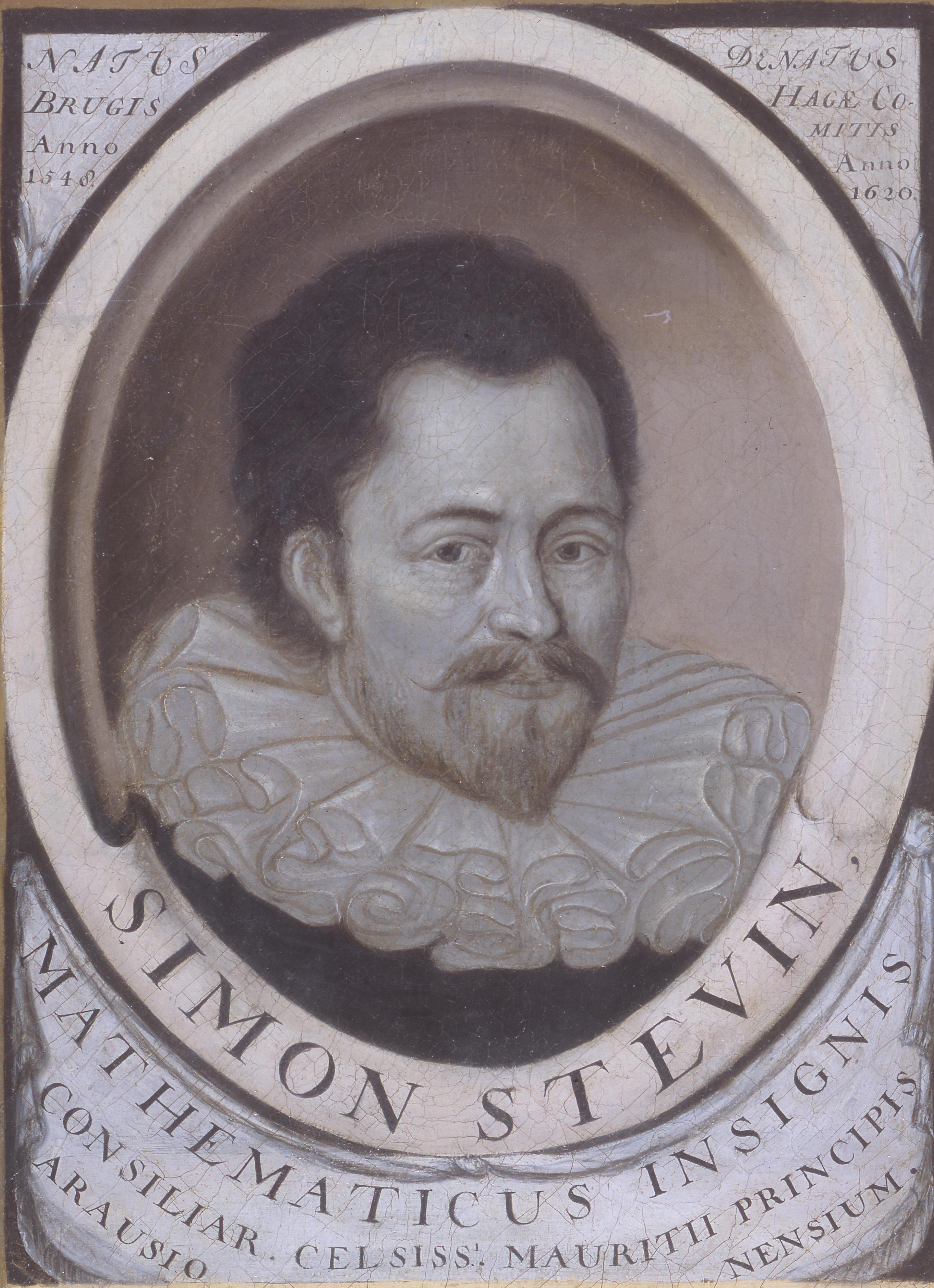“The sixt Definition. A Whole number is either a unitie, or a compounded multitude of unities.”
Disme: the Art of Tenths, Or, Decimall Arithmetike (1608)
Simon Stevin , también conocido como Simón de Brujas o Stevinus fue un matemático, ingeniero militar e hidráulico, constructor de molinos y fortificaciones, semiólogo, contable e intendente neerlandés. Se le considera el padre de los números negativos por ser el primer matemático que los aceptó como resultado de ecuaciones algebraicas.[1][2] Wikipedia

“The sixt Definition. A Whole number is either a unitie, or a compounded multitude of unities.”
Disme: the Art of Tenths, Or, Decimall Arithmetike (1608)
Disme: the Art of Tenths, Or, Decimall Arithmetike (1608)
“The second Definition. Number is that which expresseth the quantitie of each thing.”
Disme: the Art of Tenths, Or, Decimall Arithmetike (1608)
Disme: the Art of Tenths, Or, Decimall Arithmetike (1608)
Géographie, in Les Oeuvres Mathématiques de Simon Stevin de Bruges (1634) ed. Girard, p. 106-108, as quoted by Jacob Klein, Greek Mathematical Thought and the Origin of Algebra (1968)
Disme: the Art of Tenths, Or, Decimall Arithmetike (1608)
Disme: the Art of Tenths, Or, Decimall Arithmetike (1608)
Disme: the Art of Tenths, Or, Decimall Arithmetike (1608)
Géographie, in Les Oeuvres Mathématiques de Simon Stevin de Bruges (1634) ed. Girard, p. 109, as quoted by Jacob Klein]], Greek Mathematical Thought and the Origin of Algebra (1968)
Disme: the Art of Tenths, Or, Decimall Arithmetike (1608)
Disme: the Art of Tenths, Or, Decimall Arithmetike (1608)